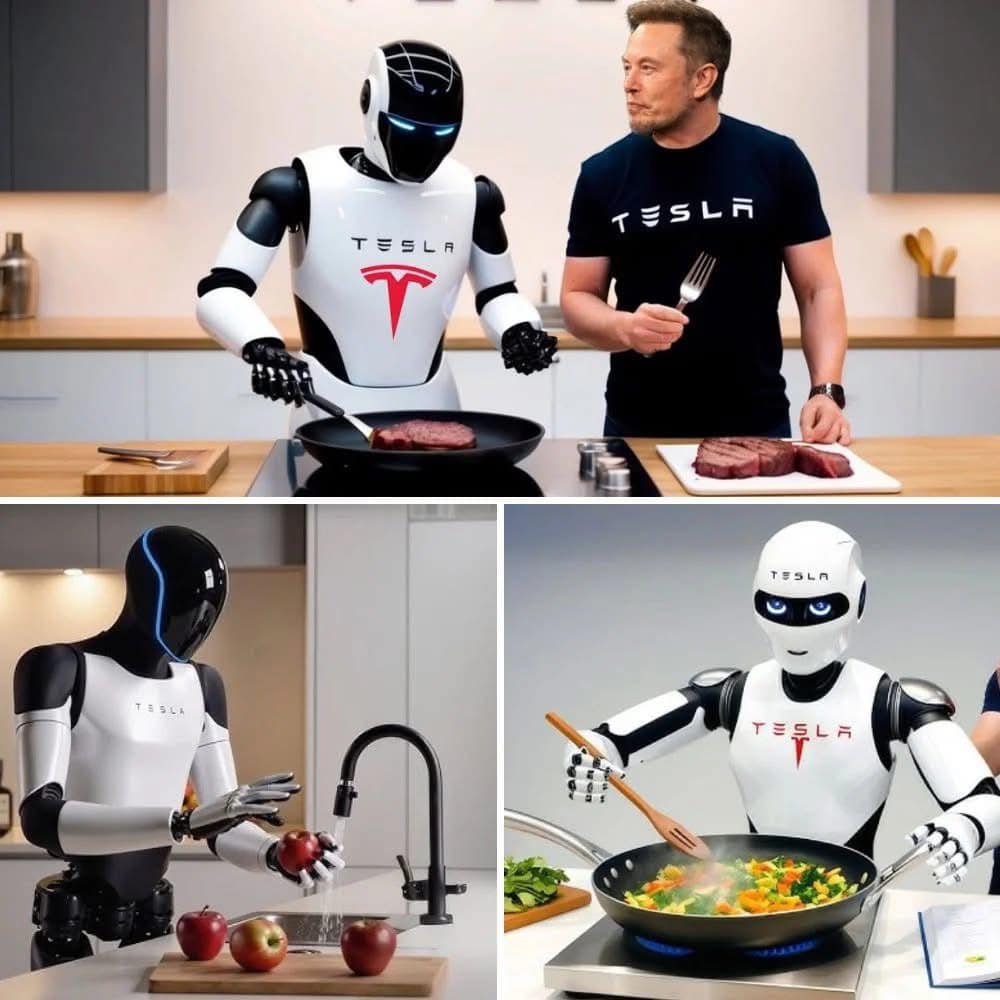In a groundbreaking move that could revolutionize the culinary industry, Elon Musk has unveiled a $5,000 robot chef designed to outperform human chefs in efficiency, precision, and cost-effectiveness. This innovation promises to redefine home cooking, restaurant operations, and even gourmet dining experiences.

A Game-Changer in the Kitchen
The robot chef, developed by one of Musk’s cutting-edge AI and robotics companies, is equipped with advanced machine learning, high-speed robotic arms, and an extensive database of global recipes. Unlike conventional kitchen appliances, this AI-driven culinary assistant can replicate complex dishes with near-perfect accuracy, adapting to user preferences and dietary requirements.
How It Works
This futuristic kitchen assistant utilizes a combination of sensors, cameras, and AI-powered software to chop, stir, sauté, and plate dishes with incredible precision. It learns from professional chefs by analyzing cooking techniques and adjusting seasoning, texture, and presentation in real time. With pre-programmed recipes and the ability to download new ones, the robot chef can create a wide variety of cuisines, from Michelin-star meals to homemade comfort food.
Why It’s a Threat to Professional Chefs
The introduction of an affordable, highly efficient robot chef raises concerns among professional chefs and restaurant owners. While human chefs bring creativity and intuition to their craft, the robot chef’s precision and consistency could challenge their role in the industry. The ability to mass-produce high-quality meals with minimal human intervention may lead to shifts in restaurant dynamics, potentially reducing the demand for skilled culinary labor.
Impact on the Food Industry
- Home Cooking Revolution – The robot chef offers an easy and efficient way for busy individuals to enjoy high-quality meals at home without spending hours in the kitchen.
- Restaurant Transformation – Restaurants may integrate robotic chefs to reduce labor costs and streamline operations while maintaining consistent food quality.
- Reduced Food Waste – With precise ingredient measurements and optimized cooking processes, food waste could be significantly minimized.
- Customization at Scale – The ability to cater to specific dietary needs, such as vegan, keto, or allergy-friendly diets, could be a game-changer for the food industry.
Challenges and Concerns
While the concept of a robotic chef is exciting, there are challenges to consider. Will it truly replace human creativity in cooking? Can it handle the fast-paced, unpredictable nature of professional kitchens? And what does this mean for the future of culinary jobs? Moreover, ethical concerns regarding automation and job displacement will likely spark debates within the industry.
The Future of AI in Cooking
Elon Musk’s robot chef marks a significant step toward AI-driven culinary experiences. As technology advances, we may see a future where human chefs work alongside robots, merging creativity with machine efficiency. Whether this invention will completely replace professional chefs remains to be seen, but one thing is certain: the food industry is on the brink of a major transformation.
Would you trust a robot to cook your meals? The answer to that question may define the future of dining as we know it.


